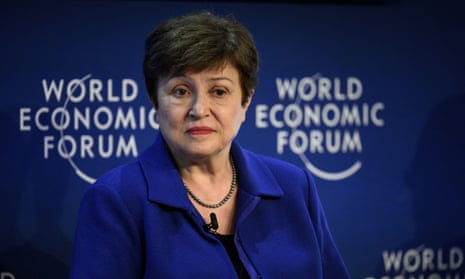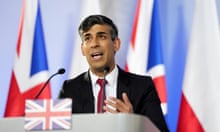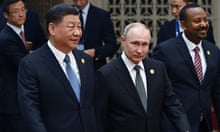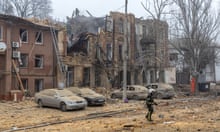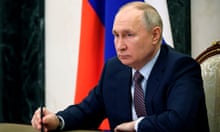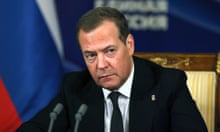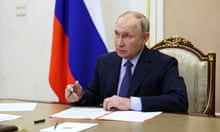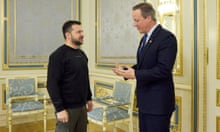The head of the International Monetary Fund (IMF) has said the war in Ukraine has darkened the outlook for the global economy and could result in recession for more vulnerable countries.
Kristalina Georgieva predicted that 2022 would be a tough year and declined to rule out a global recession if conditions worsened markedly.
Asked in a session on the world economy at the annual meeting of the World Economic Forum in Davos, Switzerland, whether the IMF was forecasting a global recession, Georgieva replied: “Not at this point. It doesn’t mean one is out of the question.”
The IMF managing director said her organisation had recently downgraded the growth prospects for 143 of its member states, which represent 80% of global output.
“Since then the horizon has darkened,” she said, pointing out that the impact of the war in Ukraine was being amplified by a tightening of financial conditions, a rising US dollar and a slowdown in China. “2022 is going to be a tough year.”
Along with other Davos attenders, the IMF head highlighted the risks of rising food prices. Georgieva said there had been a sense over the past week that the global economy was getting into rougher waters. The oil price had come down but “food prices continue to go up, up, up, up”.
She said: “We can shrink the use of petrol when growth slows down but we have to eat every day. The anxiety about access to food at a reasonable price, globally, is hitting the roof.”
The IMF is now predicting global growth of 3.6% this year, and Georgieva said it was a long way from turning negative. “What we may see is recession in some countries that are weak to begin with. They haven’t recovered from the Covid crisis. They’re highly dependent on imports from Russia, of energy or food, and they have a somewhat weaker environment already.”
Jane Fraser, the chief executive of the US investment bank Citigroup, told the same Davos panel that Europe looked particularly vulnerable. “Europe is right in the middle of the storms from supply chains, from the energy crisis, and obviously just the proximity to some of the atrocities that are occurring in Ukraine,” she said.
